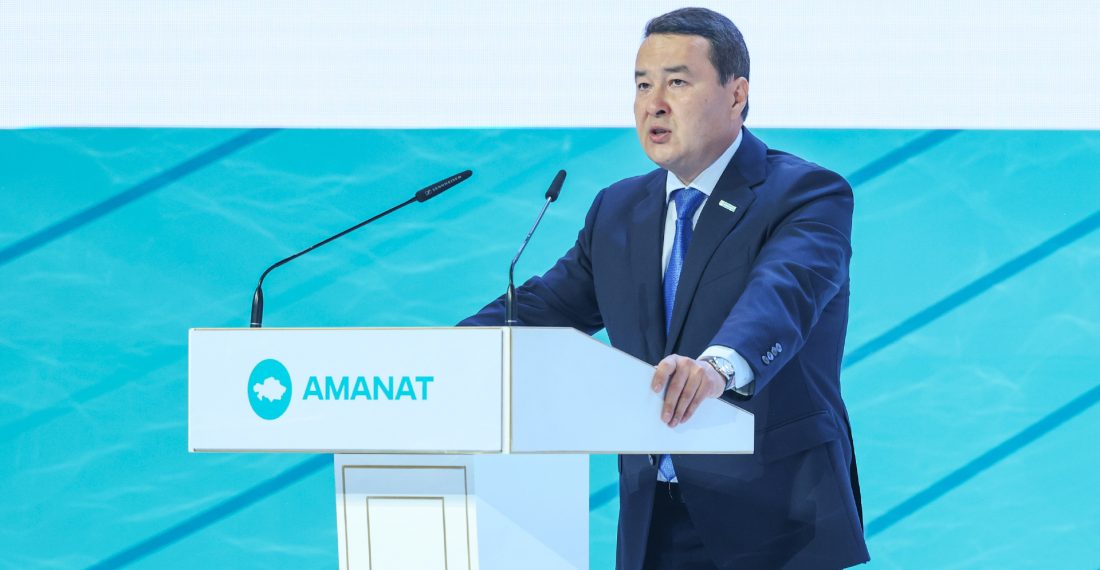Kazakhstan's GDP grew by 4.5% in the first five months of 2023, announced Prime Minister Alikhan Smailov on Thursday (29 June) at a national forum of members of local representative bodies of the ruling Amanat Party.
Smailov said that the Kazakh economy was seeing growth in all main sectors, including a 12% increase in construction, 10% in trade, 9% in communications, 7% in transport and 3.3% in manufacturing. This comes on top of a 3.3% growth in Kazakhstan's GDP in 2022. "This year, we expect the economy to grow by 4.5-5% and by at least 6% in the medium term," he said.
Despite the strong economic growth Kazakhstan is also experiencing high inflation, although this is expected to come down in the coming months too, said Smailov.
"Annual inflation slowed down from 21% to 15.9% this May, and our task is to cut it two-fold by the end of the year," Smailov said.
The Prime Minister said that food price stabilisation was a particular priority for the government, with measures tackling the problem including forward contracts with agricultural producers, work on the stabilisation of food funds, and the construction of vegetable storage facilities, among others.







